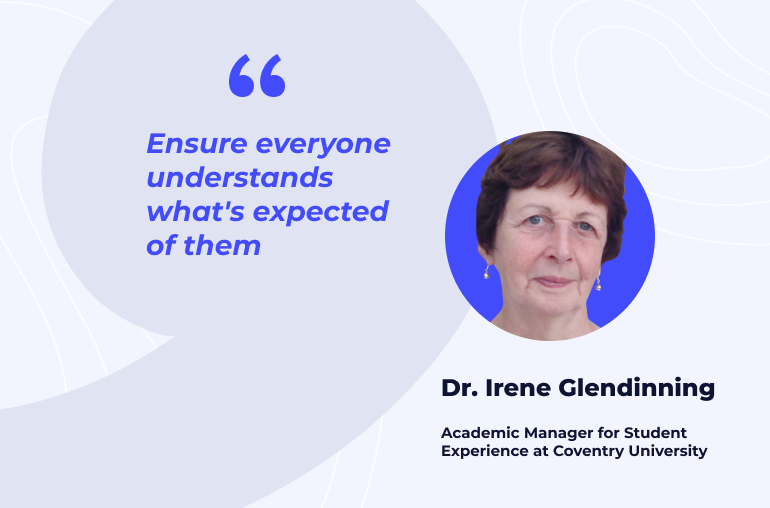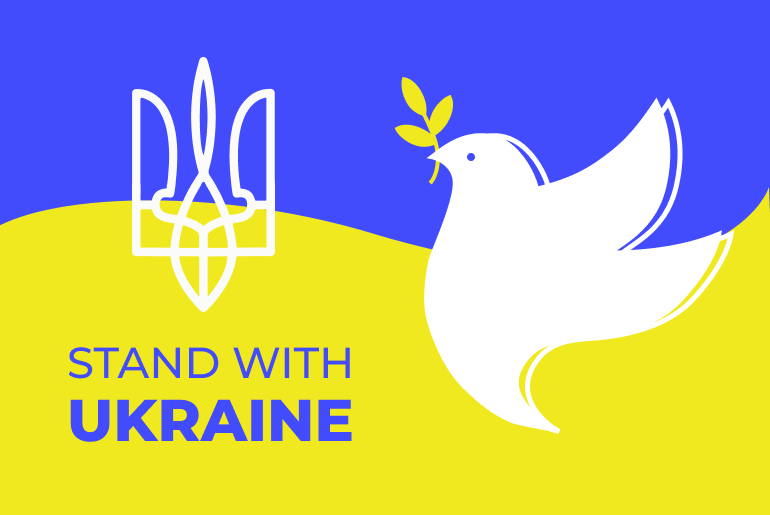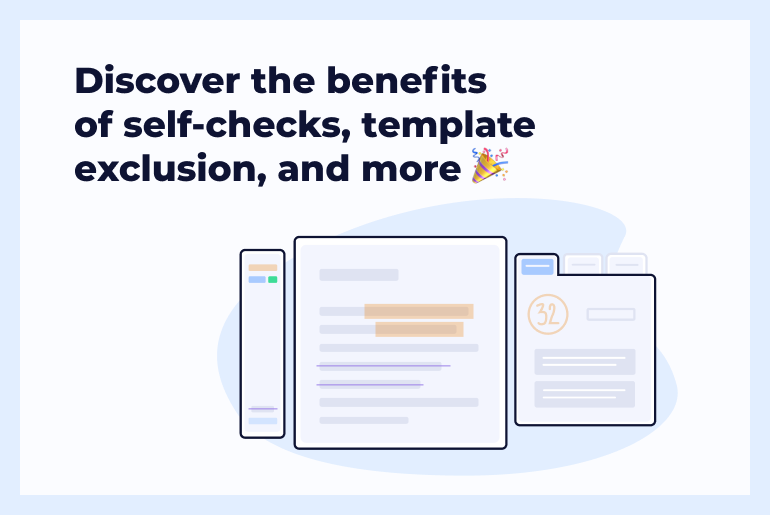Research and practice go hand in hand. One may give thousands of inspiring speeches on procedures for academic integrity, but some proposed solutions may be far from feasible.
Our interviewee, Dr. Irene Glendinning, has both theoretical and practical knowledge, having conducted a series of research projects into pedagogy and academic integrity in higher education. One of them, funded by the Erasmus, had been carried out throughout 2010-13 to learn effective institutional plagiarism policies and find ways to put them to good use.
As an institutional lead on academic integrity, Dr. Irene Glendinning is coordinating a major review of procedures for academic integrity at Coventry University, which started in the autumn of 2019. They plan to implement the changes in September 2020 and continue very effectively with all the team working together on-line.
Dr. Irene Glendinning is also advising on complex operational problems on academic dishonesty allegations that arise quite often as a result of remote working. Solutions to these operational issues are impacting on long-term policies and procedures for academic integrity.
Her other role is supporting plans for much more on-line working as this will remain part of their institutional strategy for learning, teaching and assessment.
Explore Dr. Irene Glendinning’s insights into the process of establishing academic integrity online. A bunch of practical recommendations awaits you right at the end.
Unicheck: Is there any difference in facilitating procedures for academic integrity during remote and face-to-face learning?
Irene: The positive side of our academic integrity review changes include ensuring everyone in our community understands what we expect of them.
We are busy strengthening the provision of good quality educational materials about academic integrity, academic study and writing skills to ensure all students understand their obligations and our expectations. These requirements have now translated into an urgent need to get these materials available in time for on-line student registration and induction, starting at the end of July.
We also need to provide training for all academic staff on their new roles for helping to deliver these aspects of the curriculum. It is not just about creating materials, but finding ways to engage and inspire students and staff.
The other aspect of academic integrity is handling violations.
The on-line working has changed the way this is done, but also the ways students may violate integrity have changed. Because staff had very little time to respond to the lockdown, they had to adapt the assessment to ensure it could be conducted on-line. Some tutors were more successful than others at achieving this. In some subjects there was a large increase in very blatant cheating during exams – typically colluding with other students and cutting and pasting from Internet sources.
In other subject areas there was very little change in the number of academic dishonesty cases and in one area the number of allegations appears to have been lower than usual, but it is early days. We will fully investigate this phenomenon when reliable statistics are available to ensure we can put in place suitable measures to minimise opportunities to cheat, but also to communicate much better with students about what is allowed.
Of course, for the foreseeable future all the academic dishonesty allegations have to be handled on-line. Although we have a similar problem every summer, when our international students are back home, this was on a much larger scale. I issued some guidance to academic conduct officers on what technology is permitted for academic conduct meetings with students to comply with security and data protection and privacy requirements.
Regarding our duty of care, there must be a way to authenticate that the student is the right person and ensure they have access to appropriate guidance from the Student Union before, during and after the meeting where the allegations are made. It is also important to ensure that only authorised people attend the meeting.
There were some issues reported regarding lack of access to suitable tech or lack of privacy at the student end. I recommended that if basic security requirements cannot be met then the meetings should be delayed until suitable arrangements can be made.
Unicheck: What may hinder educators from maintaining the same level of academic integrity during the pandemic? What’s the best way to overcome this?
Irene: Many factors contribute to decisions students take that lead to academic dishonesty. There are different factors when they are studying remotely and are not on campus. Although many of our international students went home, a significant minority did not and are still resident in our student accommodation.
Students may feel insecure about their learning and may be in close proximity with other students or with family and friends. They may be more likely to turn to people close to them for support rather than to ask their tutor, which could lead to collusion, sharing or unfair assistance.
New forms of collusion such as these may be difficult for the tutor to spot and even more difficult to evidence, so may go unchecked, we don’t know whether there are long-term consequences from student cheating escaping detection in this way, we can only speculate at present.
UK students were promised “no detriment” by their institutions, in the form of compensatory measures to allow for any disruption to their education during the lockdown. My fear is that some students may have interpreted this as “anything goes, I’m not going to be penalised whatever I do so it is OK to cheat”. I’m hearing some messages from different universities that this might have happened.
The student and tutors themselves may have been under pressure due to caring responsibilities, illness and bereavement within their family circle and not able to devote as much time as desirable for studying (students) or (tutors) providing support for their students.
Unicheck: One of your expertise areas is fighting contract cheating. What are the most effective strategies and tactics for tackling it at universities?
Irene: We are working very hard and trying lots of different things. So far nothing is helping, but we are hoping it will start to decline. If students believe we cannot find it then some (minority) will continue to take advantage.
We need to have a mixture of these elements:
- Innovative assessment design to make it more difficult
- Effective legislation in all/most countries to make essay mills, working for them and advertising them illegal, backed by action from advertising and social media companies
- Working with students to raise awareness and discourage use of third parties / essay mills / ghost writers about academic integrity, dangers of contract cheating and other forms of academic dishonesty
- Educating students to ensure they have all the skills they need, particularly for academic writing and use of sources, to successfully graduate without cheating
- Working with academic staff to ensure they understand their role/duty to report suspected cases
- Support for academic staff together with software tools to help to identify suspicious cases and generate evidence
- Robust institutional policies consistently applied backed by strong but fair sanctions
- Training for everyone involved in academic conduct decisions to ensure they understand and follow the appropriate procedures, including applying the “balance of probabilities” burden of proof
- Encouraging reporting and whistleblowing by students and professional services staff where there is suspicions or evidence of contract cheating.
- Pro-actively investigating any evidence that arises to strengthen what we present to the panel





